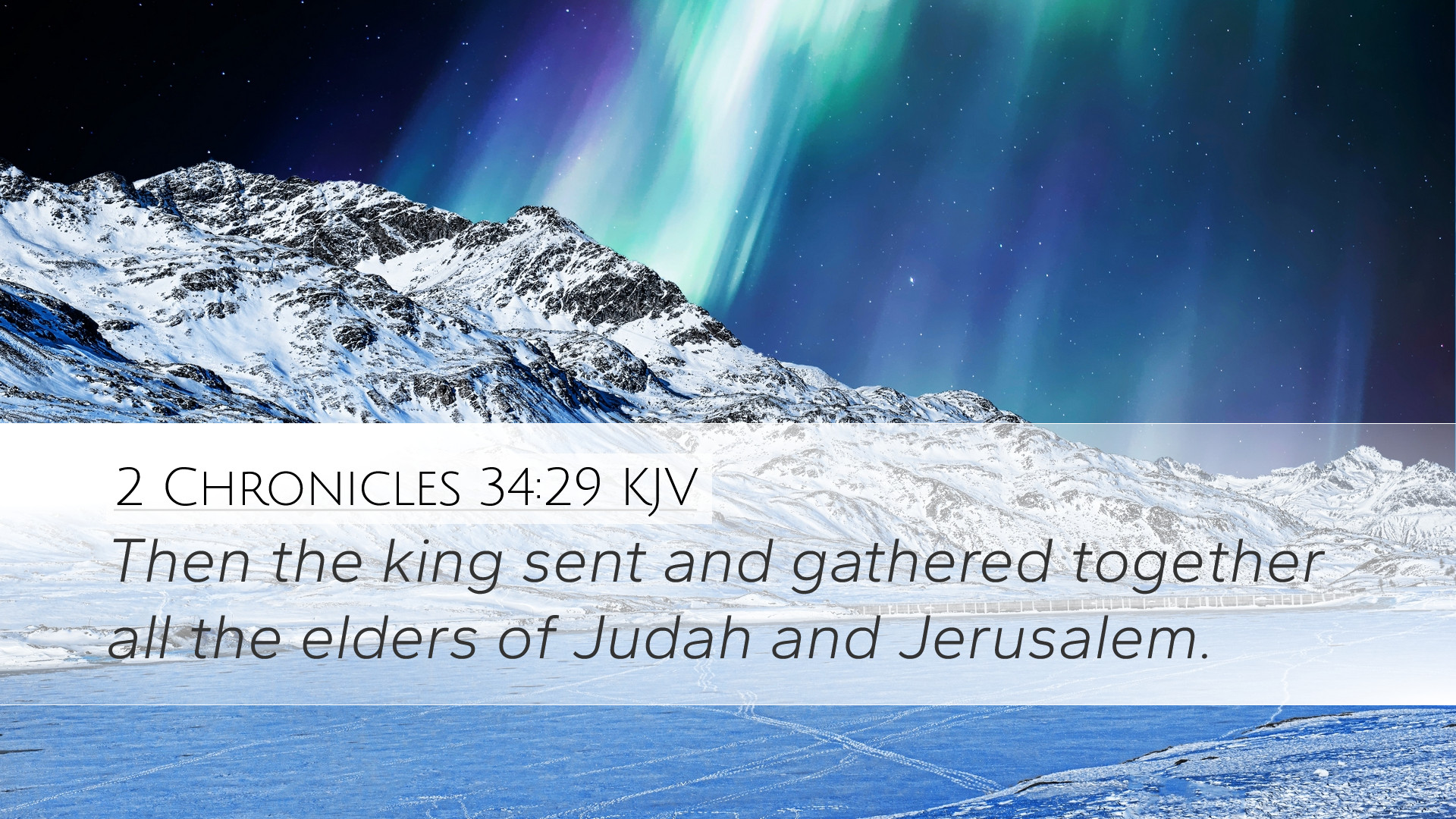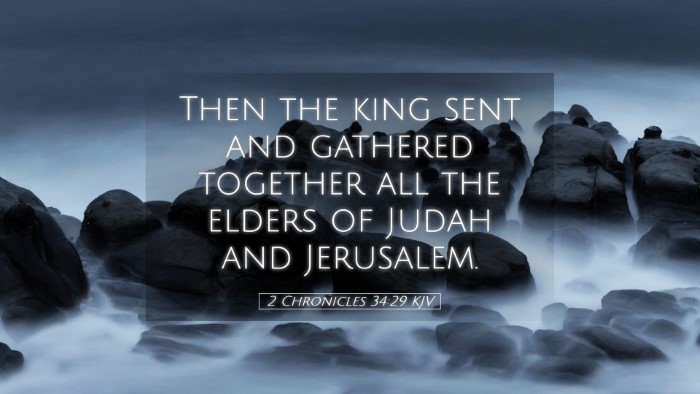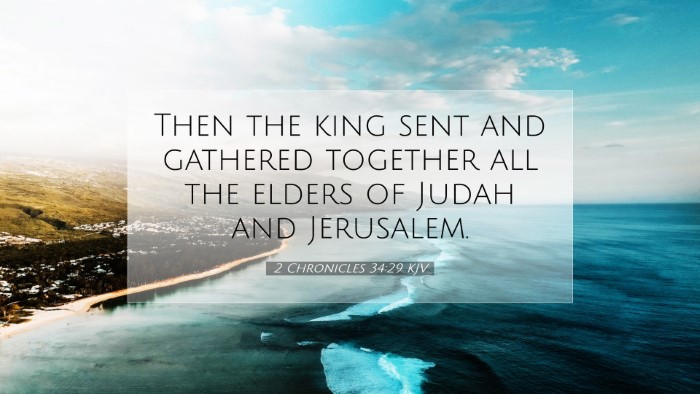Bible Commentary on 2 Chronicles 34:29
Verse Reference: 2 Chronicles 34:29 - "Then the king sent and gathered together all the elders of Judah and Jerusalem."
Introduction
The passage in 2 Chronicles 34:29 marks a pivotal moment in the reign of King Josiah of Judah. Following the discovery of the Book of the Law in the temple, Josiah's reforms become a significant event in the spiritual revival of Judah. This commentary aims to elucidate the profound implications of this verse using insights from various public domain commentaries, including those by Matthew Henry, Albert Barnes, and Adam Clarke.
The Context of 2 Chronicles 34
To fully understand the significance of 2 Chronicles 34:29, one must consider the broader context of Josiah's reign. Josiah became king at a young age and was known for his commitment to reclaiming the worship of Yahweh amidst a nation steeped in idolatry.
Historical Background
Josiah's reign is noted for its religious reforms that began when he was still a young king. The discovery of the Book of the Law (likely Deuteronomy) during the temple restoration prompted a national repentance led by Josiah. This discovery not only catalyzed Josiah’s immediate reform efforts but also had long-lasting effects on the nation of Judah.
Analysis of Key Themes
1. The Role of Leadership
Josiah’s leadership is as important as his reforms. In this verse, his initiative to gather the elders of Judah indicates a collective approach to spiritual renewal. Matthew Henry emphasizes that effective leadership must involve the engagement of wise and experienced individuals in the community.
Importance of Community Involvement
Josiah's decision to involve the elders demonstrates an understanding of communal responsibility in seeking God. Albert Barnes highlights leadership that seeks consensus and fosters collaboration among the nation’s leaders, showcasing that spiritual revival is often a communal effort.
2. The Call to Repentance
Gathering the elders symbolizes Israel’s need to repent as a nation. Adam Clarke notes that this collective gathering responded to the immediate crisis of sin when God’s Word was rediscovered. The leaders' presence indicates their acknowledgment of their role in leading the people back to God.
Corporate Worship and Reform
The act of calling the elders together also emphasizes the nature of worship as collective rather than individualistic, which resonates with themes found throughout Scripture about community, accountability, and shared faith.
3. The Dynamics of God's Word
The pivotal role of Scripture is highlighted in Josiah's actions. The discovery of the law led to profound change, and gathering the elders for a communal response illustrates the transformative power of God’s Word. Matthew Henry notes that Josiah's heart became sensitive to divine authority upon hearing the words of the law.
Transformation Through Understanding
As the elders gathered, it was imperative for them to understand the law's implications fully. Albert Barnes stresses the importance of understanding Scripture correctly for effective ministry and revival. This gathering serves as a model for how congregations today must approach God’s Word with seriousness and discernment.
Theological Implications
1. A Model for National Renewal
Josiah's actions present a blueprint for spiritual leaders and church congregations today. The call for a gathering suggests that spiritual awakening can and should involve comprehensive engagement across all levels of leadership and congregation. Adam Clarke suggests this could serve as a revival model where leaders lead by example, inspiring others.
2. The Authority of Scripture
This verse strongly indicates the central role of the Scriptures in guiding nations. The authority of God's law acted as a catalyst for Josiah's reforms. As Clarke points out, the neglect of God’s Word leads to moral and spiritual decay, while its restoration leads to renewal.
Conclusion
2 Chronicles 34:29 serves as a profound reminder of the significance of leadership, community involvement, and the transformative power of God’s Word. Utilizing insights from public domain commentaries, we are called to reflect upon how Scripture must be the foundation for spiritual revival. The example set by Josiah invites contemporary believers to respond collectively to God's leading, encouraging leaders and congregations to seek renewal through the authority of the Scriptures.
Reflection Questions
- What can modern leaders learn from Josiah’s approach to gathering counsel for reform?
- How can we cultivate a corporate understanding of Scripture in our churches today?
- In what ways can churches actively engage in communal repentance and renewal?


